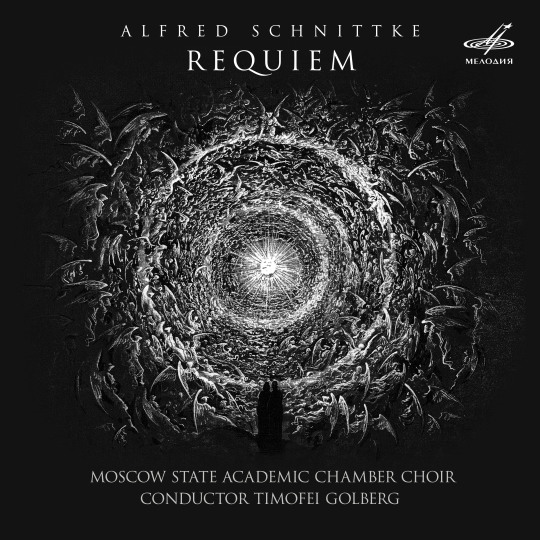#dies irae tuba mirum
Text
i have already made peace with the fact that ill never find the perfect d minor requiem (tempi-wise). but bernstein's comes pretty close <3
#also it has jerry hadley my beloved and maria ewing <333 the soloists are really Good which doesnt happen often#(the bass is a bit too baritonish for me but its nothing jarring)#introitus is too slow.#kyrie is great. could be a little faster but it's perfectly fine like this too.#dies irae is PERFECT#tuba mirum is great too tho i could also see it also work with a little faster tempo but nothing wild#rex tremendae is great tho i also dont mind when its a little slower (and i very rarely say this about mozart)#ricordare is just right too. any slower and it would be unbearable lol#confutatis is PERFECT#lacrimosa is HORRIBLE. it SHOULD be slow but lenny is really just taking the piss here.#karajan and abbado go a tad too fast for me. böhm's is fine tho the rest of his requiem is way too slow for me#domine jesu is perfect#and i dont usually much care for the rest of it but its fine too#forever bitter and heartbroken over the unfinished amen fugue </3
4 notes
·
View notes
Text
Papa’s playlists - music headcanons
Sometimes when I listen to music I mentally associate what I’m listening to the Papas, so I thought it would have been fun to imagine a 10 songs playlist for/of each Papa. I have chosen the songs by their personalities, the kind of music they have done and the general vibes I get when I listen to the songs.
Primo:
I see him sitting on his couch by the fire, immersed in his voluminous, rich vestments. He can listen to the heaviest doom metal tune without moving an inch of his body, fully immersed in understanding the lyrics, but 70s rock always brings back his old memories of when he used to throw small parties in his chamber whenever the Beatles or his favorite bands released a new LP.
The Beatles - Come together
Black Sabbath - Iron Man
Mayhem - Freezing moon
The Rolling Stones - Start me up
Candlemass - Bewitched
Bathory - A fine day to die
Mercyful fate - Evil
The animals - House of the rising sun
Slayer - Seasons in the Abyss
Diamond Head - Am I Evil?
Secondo:
He has two sides: the old-school metalhead and the devoted enthusiast of good old symphonic music. He prepares himself a cigar and settles at his desk, embracing the darkness like the nocturnal creature he is, to work on papers or perhaps write some lyrics inspired by his favorite arias. In his playlist, you can always find something classy followed by something extremely heavy.
Led Zeppelin - Kashmir
Slayer - South of Heaven
Venom - Don’t burn the witch
Giuseppe Verdi - Dies Irae/Tuba Mirum
Deep Purple - Perfect Strangers
King Diamond - The family ghost
The Doors - Riders on the storm
Guns and Roses - Coma
Bobby Vinton - Blue velvet
Antonio Vivaldi - Four Seasons
Terzo:
Ah, Terzo. Whether he's completing his nighttime skincare routine, getting dressed for a mass, preparing for a date, or simply relaxing in his chambers with a good wine, he always has a record playing in the background. He's not a headbanger, but he likes to keep the tempo with his hands. He taps his fingers on his thigh to match the drum tempo of most rhythmic songs or moves his hands softly to the sound of the mellower ones, like when he listens to "Barcelona," adjusting his hand movements based on the virtuosity of the voices.
Candlemass - Well of Souls
The struts - Kiss this
Metallica - Until it sleeps
Metallica - For whom the bell tolls
Kreator - People of the lie
Freddie Mercury feat Montserrat Caballe - Barcelona
David Bowie - Starman
Pentagram - Sign of the wolf
Sepoltura - Dead embryonic cells
Mercyful fate - Witches dance
Copia:
I can totally picture Copia putting on something groovy like "Stuck In The Middle With You" while attempting to cook something, swaying his hips to the rhythm and inevitably either burning whatever is in the pan or creating a mess on the counter by dropping bottles and food.
Alice Cooper - Poison
Iron Maiden - Run to the hills
Steppenwolf - Born to be wild
Dead or Alive - You spin me round
Black Sabbath - Paranoid
Judas Priest - Painkiller
The Rolling Stones - Sympathy for the devil
Stealers wheel - Stuck in the middle with you
The Darkness - Love is only a feeling
Bon Jovi - You give love a bad name
Nihil:
An old-school rocker. He would pick you up in his car with Led Zeppelin playing at full volume, take you to a bar where he puts on your favorite song in the jukebox, and by the time you come back from the toilet, he's kissing some random girl right at the bar counter. He would later apologize, claiming he was just drunk and thought that was you… a red flag you'll ignore.
The Doors - Touch me
Led Zeppelin - Whole lotta love
Elton John - Tiny dancer
Ozzy Osburne - Crazy train
Deep Purple - Child in time
Deep Purple - Hush
Jefferson airplane - White rabbit
Elvis Presley - Suspicious minds
The Rolling Stones - Paint it black
The Beatles - Helter Skelter
#the band ghost#ghost band#ghost headcanons#papa emeritus i#papa emeritus ii#papa emeritus iii#papa emeritus iv#copia#headcanon#the band ghost fanfiction
58 notes
·
View notes
Text
Orazio Vecchi (1550-1605)
– IV. Dies irae. Missa Pro defunctis
[Missae senis et octonis vocibus ex celeberrimis auctoribus Horatio Vecchio aliisque collectae nomina pagina versâ invenies. (Pierre Phalèse, Antwerp, 1612.)]
Dies iræ, dies illa, / Solvet sæclum in favilla, / Teste David cum Sibylla! / Quantus tremor est futurus, / quando iudex est venturus, / cuncta stricte discussurus! //
Tuba mirum spargens sonum / per sepulcra regionum, / coget omnes ante thronum. / Mors stupebit et Natura, / cum resurget creatura, / iudicanti responsura. / Liber scriptus proferetur, / in quo totum continetur, / unde Mundus iudicetur. / Iudex ergo cum sedebit, / quidquid latet apparebit, / nil inultum remanebit. / Quid sum miser tunc dicturus? / Quem patronum rogaturus, / cum vix iustus sit securus? //
Rex tremendæ maiestatis, / qui salvandos salvas gratis, / salva me, fons pietatis. //
Recordare, Iesu pie, / quod sum causa tuæ viæ; / ne me perdas illa die. / Quærens me, sedisti lassus, / redemisti crucem passus, / tantus labor non sit cassus. / Iuste Iudex ultionis, /donum fac remissionis / ante diem rationis. //
Ingemisco, tamquam reus, / culpa rubet vultus meus, / supplicanti parce Deus. / Qui Mariam absolvisti, / et latronem exaudisti, / mihi quoque spem dedisti. / Preces meæ non sunt dignæ, / sed tu bonus fac benigne, / ne perenni cremer igne. / Inter oves locum præsta, / et ab hædis me sequestra, / statuens in parte dextra. //
Confutatis maledictis, / flammis acribus addictis, / voca me cum benedictis. / Oro supplex et acclinis, / cor contritum quasi cinis, / gere curam mei finis. //
Lacrimosa dies illa, / qua resurget ex favilla / iudicandus homo reus. / Huic ergo parce, Deus. / Pie Iesu Domine, / dona eis requiem. // Amen.//
_
Orazio Vecchi – Requiem. Rubens’s Funeral And The Antwerp Baroque.
Graindelavoix. Björn Schmelzer
(2017, Glossa – GCD P32113)
14 notes
·
View notes
Text

Tracklist:
Requiem: 1. Requiem • Requiem: 2. Куrie • Requiem: 3. Dies irae • Requiem: 4. Tuba mirum • Requiem: 5. Rex tremendae • Requiem: 6. Recordare • Requiem: 7. Lacrimosa • Requiem: 8. Domine Jesu • Requiem: 9. Hostias • Requiem: 10. Sanctus • Requiem: 11. Benedictus • Requiem: 12. Agnus Dei • Requiem: 13. Credo • Requiem: 14. Requiem • Three Sacred Hymns: No. 1, Hail Mary, Full of Grace • Three Sacred Hymns: No. 2, Lord Jesus Christ • Three Sacred Hymns: No. 3, The Lord’s Prayer
Spotify ♪ Youtube
#hyltta-polls#polls#artist: alfred schnittke#artist: moscow state academic chamber choir & timofei golberg#language: latin#decade: 2020s#Contemporary Classical#Classical#Avant-Garde#20th Century Classical
6 notes
·
View notes
Text
RIP Peter Schickele, 2024-1935
The world's a poorer place without the inventor of the tromboon and the lasso d'amore.
I got to hear "Hornsmoke" live soon after its composition. I was a kid and totally didn't get the "Reverend Tubby Mirum" joke, but I do now.
(For those who need a hint: it's a riff on a line from the Dies irae: Tuba mirum spargens sonum.)
youtube
7 notes
·
View notes
Text
rules: shuffle your ‘on repeat’ playlist and post the first ten tracks, then tag ten people 🎶
Thanks for the tag @officerjennie - Beloved Jamie, my music player likes to remind me of how much I loved a girl band way back when, but we’ll see what pops up!
I selected 宿命 by Official Hige Dandism to get me started, but it’s not song #1. I tried to link to official YouTube sources for the music.
Breathless - Arashi
Messa da Requiem: Dies Irae - Tuba Mirum - performed by the London Philharmonic, written by Giuseppe Verdi
Shiny - Jemaine Clement (from ‘Moana’)
I Wanna Be Your Ghost (feat. Ghosts) - Hoshino Gen
Amaoto (house ver.) - Hoshino Gen
I Can’t Wait For Christmas - Arashi
Bugler’s Holiday - performed by the UCLA Wind Ensemble, written by Leroy Anderson
The Point of No Return - Gerard Butler, Emmy Rossum (from ‘The Phantom of the Opera’, movie ver.)
The Jam Song - Steven and Connie (from ‘Steven Universe’)
Blood Brothers - performed by the Seatbelts, written by Yoko Kanno (from ‘Cowboy Bebop - Netflix’)
Looking this over, I clearly lean towards instrumental, Japanese pop, and soundtracks, haha. I would say that’s pretty accurate! Let me know if you loved any of these.
Tagging @dapandapod @bi-aragorn @kueble @silvermintnightprincess @silvipeppers @jaskiersvalley @samstree @spudmeisterin @mollymawkwrites @firefly-party
6 notes
·
View notes
Text
fuck me to the tune of verdi messa da requiem movement ii dies irae et tuba mirum
0 notes
Text
yes baby youre so Introitus Kyrie Sequentia a Dies irae Tuba mirum Rex tremendae Recordare Confutatis Lacrymosa Offertorium Domine Jesu Hostias Sanctus Benedictus Agunus Dei Communio, now take your pills
0 notes
Text
K. Penderecki's "A Polish Requiem" is a large-scale choral and orchestral work that was first performed in 1984. The work is a setting of the traditional Latin texts of the Requiem Mass, but it also incorporates Polish folk music and other elements of Polish culture.
The work is in six movements, each of which is based on a different text from the Requiem Mass. The first movement, "Introitus," is a somber and reflective introduction. The second movement, "Dies irae," is a powerful and dramatic depiction of the Day of Judgment. The third movement, "Tuba mirum," is a more lyrical and contemplative movement. The fourth movement, "Mors stupebit," is a triumphant celebration of the Resurrection. The fifth movement, "Libera me," is a prayer for deliverance from eternal damnation. The sixth movement, "Pie Jesu," is a tender and moving plea for mercy.
"A Polish Requiem" is a challenging and demanding work, but it is also a deeply moving and powerful expression of grief and hope. The work is a testament to Penderecki's mastery of musical form and his ability to communicate complex emotions through music.
Some specific details about the work:
The work is scored for a large orchestra, including a full complement of brass and percussion, as well as a large choir.
The work is full of dramatic contrasts, from the quiet and reflective passages to the loud and dissonant passages.
The work incorporates elements of Polish folk music, such as the use of bagpipes and other traditional instruments.
The work is dedicated to the victims of the Holocaust and other atrocities.
"A Polish Requiem" is a significant work in the history of 20th-century music. It is a powerful and moving expression of grief and hope that continues to be performed and admired around the world.
Here is a more detailed description of each movement:
Introitus (Introduction)
The "Introitus" is a somber and reflective introduction to the work. The music is slow and quiet, with a simple melody in the choir. The movement is based on the Latin text "Requiem aeternam dona eis, Domine, et lux perpetua luceat eis." ("Grant them eternal rest, O Lord, and let light perpetual shine upon them.")
Dies irae (Day of Judgment)
The "Dies irae" is a powerful and dramatic depiction of the Day of Judgment. The music is loud and dissonant, with a driving rhythm. The movement is based on the Latin text "Dies irae, dies illa, solvet saeclum in favilla, teste David cum Sibylla." ("Day of wrath, that day shall dissolve the world in ashes, as David and the Sibyl foretold.")
Tuba mirum (The wondrous trumpet)
The "Tuba mirum" is a more lyrical and contemplative movement. The music is slow and peaceful, with a simple melody in the choir. The movement is based on the Latin text "Tuba mirum spargens sonum per sepulchra regionum, coget omnes ante thronum." ("The wondrous trumpet, scattering its sound through the tombs of the regions, will summon all before the throne.")
Mors stupebit (Death shall be astonished)
The "Mors stupebit" is a triumphant celebration of the Resurrection. The music is loud and joyful, with a triumphant melody in the choir. The movement is based on the Latin text "Mors stupebit et natura, cum resurget creatura, judicanti responsura." ("Death shall be astonished and nature, when the creature shall rise again, to answer the Judge.")
Libera me (Deliver me)
The "Libera me" is a prayer for deliverance from eternal damnation. The music is slow and pleading, with a simple melody in the choir. The movement is based on the Latin text "Libera me, Domine, de morte aeterna, in die illa tremenda." ("Deliver me, O Lord, from eternal death, on that terrible day.")
Pie Jesu (Pie Jesu)
The "Pie Jesu" is a tender and moving plea for mercy. The music is slow and peaceful, with a simple melody in the choir. The movement is based on the Latin text "Pie Jesu Domine, dona eis requiem sempiternam." ("Merciful Jesus, Lord, grant them eternal rest.")
1 note
·
View note
Link
The song from the first time we see Blackbeards flag on Our Flag Means Death, end of season 1, episode 2
1 note
·
View note
Video
youtube
#hector berlioz#berlioz requiem#symphonie funebre et triomphale#grand messe des morts#sir colin davis#london symphony orchestra#dies irae tuba mirum#my favorites on scribe4haxan#music on scribe4haxan
78 notes
·
View notes
Audio
#music#mozart#classy#classic#requiem in d minor#kyrie#irae dies#Tuba mirum#Rex tremendae#Recordare#Confutatis#Lacrimosa#Sanctus#Agnus Dei#Lux aeterna
5 notes
·
View notes
Photo

DIES IRAE (translation: the Day of Wrath) (2011) by Roberto Ferri (1978 - today)
"Dies irae" (Ecclesiastical Latin: [ˈdi.es ˈi.re]; "the Day of Wrath") is a Latin sequence attributed to either Thomas of Celano of the Franciscans (1200–c.1265) or to Latino Malabranca Orsini (d. 1294), lector at the Dominican studium at Santa Sabina, the forerunner of the Pontifical University of Saint Thomas Aquinas, Angelicum in Rome.
It is a Medieval Latin poem characterized by its accentual stress and rhymed lines. The metre is trochaic. The poem describes the Last Judgment, trumpet summoning souls before the throne of God, where the saved will be delivered and the unsaved cast into eternal flames.
It is best known from its use in the Requiem (Mass for the Dead or Funeral Mass). An English version is found in various Anglican Communion service books.
The first melody set to these words, a Gregorian chant, is one of the most quoted in musical literature, appearing in the works of many composers.
The poem:
Original
Translation
Dies iræ, dies illa
Solvet sæclum in favilla,
Teste David cum Sibylla.
Day of wrath and doom impending.
David's word with Sibyl's blending,
Heaven and earth in ashes ending.
Quantus tremor est futurus,
Quando Judex est venturus,
Cuncta stricte discussurus!
Oh, what fear man's bosom rendeth,
When from heaven the Judge descendeth,
On whose sentence all dependeth.
Tuba mirum spargens sonum,
Per sepulchra regionum,
Coget omnes ante thronum.
Wondrous sound the trumpet flingeth;
Through earth's sepulchres it ringeth;
All before the throne it bringeth.
Mors stupebit et natura,
Cum resurget creatura,
Judicanti responsura.
Death is struck, and nature quaking,
All creation is awaking,
To its Judge an answer making.
Liber scriptus proferetur,
In quo totum continetur,
Unde mundus judicetur.
Lo, the book, exactly worded,
Wherein all hath been recorded,
Thence shall judgement be awarded.
Judex ergo cum sedebit,
Quidquid latet apparebit:
Nil inultum remanebit.
When the Judge his seat attaineth,
And each hidden deed arraigneth,
Nothing unavenged remaineth.
Quid sum miser tunc dicturus?
Quem patronum rogaturus,
Cum vix justus sit securus?
What shall I, frail man, be pleading?
Who for me be interceding,
When the just are mercy needing?
Rex tremendæ majestatis,
Qui salvandos salvas gratis,
Salva me, fons pietatis.
King of Majesty tremendous,
Who dost free salvation send us,
Fount of pity, then befriend us!
Recordare, Jesu pie,
Quod sum causa tuæ viæ:
Ne me perdas illa die.
Think, kind Jesu! – my salvation
Caused Thy wondrous Incarnation;
Leave me not to reprobation.
Quærens me, sedisti lassus:
Redemisti Crucem passus:
Tantus labor non sit cassus.
Faint and weary, Thou hast sought me,
On the Cross of suffering bought me.
Shall such grace be vainly brought me?
Juste Judex ultionis,
Donum fac remissionis,
Ante diem rationis.
Righteous Judge, for sin's pollution
Grant Thy gift of absolution,
Ere the day of retribution.
Ingemisco, tamquam reus:
Culpa rubet vultus meus:
Supplicanti parce, Deus.
Guilty, now I pour my moaning,
All my shame with anguish owning;
Spare, O God, Thy suppliant groaning!
Qui Mariam absolvisti,
Et latronem exaudisti,
Mihi quoque spem dedisti.
Through the sinful woman shriven,
Through the dying thief forgiven,
Thou to me a hope hast given.
Preces meæ non sunt dignæ;
Sed tu bonus fac benigne,
Ne perenni cremer igne.
Worthless are my prayers and sighing,
Yet, good Lord, in grace complying,
Rescue me from fires undying.
Inter oves locum præsta.
Et ab hædis me sequestra,
Statuens in parte dextra.
With Thy sheep a place provide me,
From the goats afar divide me,
To Thy right hand do Thou guide me.
Confutatis maledictis,
Flammis acribus addictis,
Voca me cum benedictis.
When the wicked are confounded,
Doomed to flames of woe unbounded,
Call me with Thy saints surrounded.
Oro supplex et acclinis,
Cor contritum quasi cinis,
Gere curam mei finis.
Low I kneel, with heart's submission,
See, like ashes, my contrition,
Help me in my last condition.
Lacrimosa dies illa,
Qua resurget ex favilla,
Judicandus homo reus.
Huic ergo parce, Deus:
Ah! that day of tears and mourning,
From the dust of earth returning
Man for judgement must prepare him,
Spare, O God, in mercy spare him.
Pie Jesu Domine,
Dona eis requiem. Amen.
Lord, all-pitying, Jesus blest,
Grant them Thine eternal rest. Amen.
11 notes
·
View notes
Video
youtube
Michel-Richard Delalande, (París, 15 de diciembre de 1657 - Versalles, 18 de junio de 1726). Obra compuesta para el funeral de la princesa Marie-Anne-Christine-Victoire de Bavaria en 1690.
I. Dies irae 0:01 II. Quantus tremor 1:18 III. Tuba mirum 2:24 IV. Mors stupebit 3:51 V. Liber scriptus 5:12 VI. Recordare Jesu pie 8:13 VII. Quaerens me 10:22 VIII. Juste judex 13:15 IX. Inter oves 16:44 X. Oro supplex 19:03 XI. Lacrimosa dies illa 20:38 XII. Pie Jesu domine 23:24
Choeur & Orchestre de la Chapelle Royal. Philippe Herreweghe, director.
6 notes
·
View notes
Text

dies irae, dies illa solvet saeculum in favilla teste david cum sybilla. tuba, mirum spargens sonum per sepulchra regionum coget omnes ante thronum. quod sum miser tunc dicturus, quem patronum rogaturus cum vix iustus sit securus.

5 notes
·
View notes
Text
REQUIEM ASKS / WRITING EXERCISES
introit - if your muse could revive one person from the dead, who would it be and why?
kyrie - what are your muse’s thoughts on the afterlife?
offertorium - what piece of art describes your muse?
domine jesu christe - write about the last time your muse was tempted.
sanctus - when they wake up screaming from a nightmare, who is it that your muse calls for?
dies irae - how does your muse handle rejection?
lacrimosa - what does your muse smell like?
pie jesu - imagine someone asks your muse “what have you become?” write how they respond to that question.
tuba mirum - what does your muse look forward to most about growing old/er?
rex tremendae - what does your muse fear most about growing old/er?
benedictus - someone is selling jewelry on the side of the road. what piece catches your muse’s eye?
recordare - what is your muse’s least favourite house chore? which is their favourite?
agnus dei - does your muse attend church regularly? if so, describe the church / religion. if not, why?
lux aeterna - does your muse have any mental illnesses? if so, what are they?
libera me - write a small drabble about why your muse is awake at 2 am.
confutatis - what does your muse think about their childhood home / home life? is it a safe place? how did it impact the way they grew up? regardless of whether it is or isn’t, does your muse think it is a good place?
in paradisum - when your muse dies, how would they like to be buried?
#ask meme#rp meme#character development#lmaoooo these hit way too close to home for me and now i feel like kermit the frog
1K notes
·
View notes